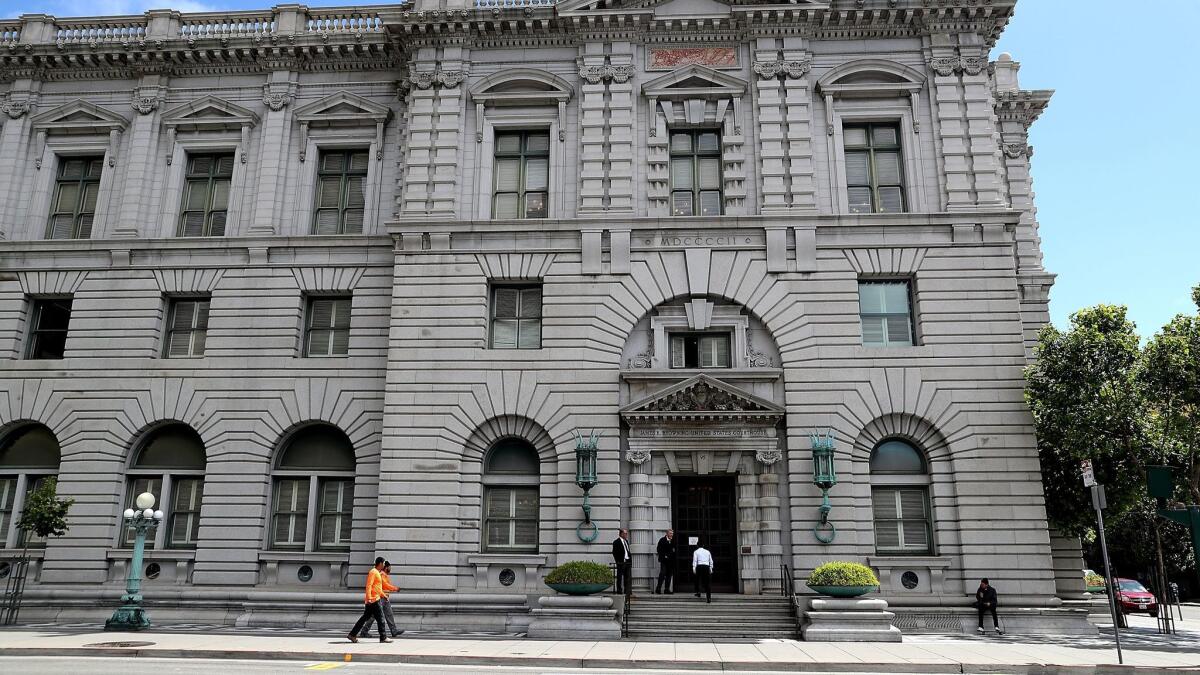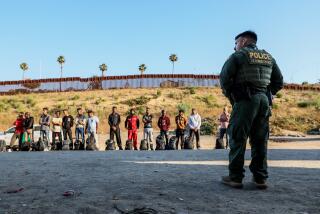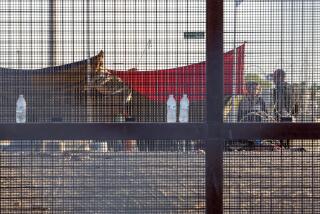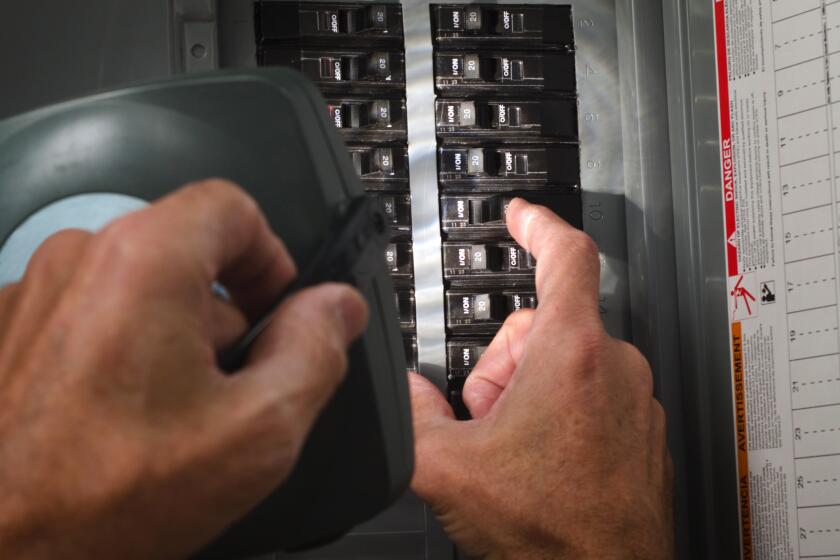Immigrant children aren’t entitled to government-paid lawyers in deportation hearings, court rules

A federal appeals court decided unanimously Monday that minor immigrants who are in the country without legal authorization are not entitled to government-paid lawyers in hearings that could lead to their deportation.
A three-judge panel of the U.S. 9th Circuit Court of Appeals upheld an immigration judge’s decision to deny asylum to a minor identified as C.J.L.G., who left Honduras at age 13 after being threatened by gangs.
The boy did not have a lawyer, and his mother was unable to find free legal help.
The 9th Circuit said federal law did not guarantee paid lawyers for children in immigration court and that the teenage boy failed to show that he needed a lawyer to safeguard his rights.
“Mandating free court-appointed counsel could further strain an already overextended immigration system,” wrote Judge Consuelo M. Callahan, who was appointed by President George W. Bush.
The decision was a blow to immigration rights activists, who have been trying to for years to get appointed counsel for youngsters facing deportation.
“It is a brutal decision,” said Ahilan Arulanantham, legal director of the ACLU of Southern California. “It is brutal for him and also brutal for thousands of other children who have fled three of the most violent countries on Earth — Honduras, Guatemala and El Salvador.”
He said most of the minors facing deportation proceedings without lawyers came to the U.S. to escape violence in those three countries.
The ACLU and another organization tried unsuccessfully in the past to obtain lawyers for minors through a class-action lawsuit.
In Monday’s ruling, the 9th Circuit expressed sympathy for the teenager but said the law did not support him.
Immigration authorities picked up the boy and his mother four days after they crossed the border in 2014. They were detained in Los Angeles.
An immigration judge repeatedly told the mother that her son was entitled to a lawyer, and she said she could not afford one, the 9th Circuit said.
In the end, she filled out her son’s asylum application herself.
“The application contains threadbare statements in support of C.J.’s asylum claim and much of what is written is borderline inscrutable and nonresponsive,” the 9th Circuit said.
The mother based her son’s request for asylum on threats by the Mara gang.
The boy “repeatedly spurned” efforts by the gang to recruit him, despite death threats made against him and his family, the 9th Circuit said. “After the Maras threatened C.J. at gunpoint, C.J. and his mother, Maria, fled Honduras.”
The ACLU of Southern California eventually took the boy’s case, arguing that he and other minors should be entitled to appointed lawyers if they could not afford to hire one.
“The decision is incorrect and also just defies common sense,” Arulanantham said. It is just sort of obvious that a child cannot get a fair hearing in a deportation case, particularly one as complicated as his … without a lawyer.”
He said the ACLU had not yet decided whether to appeal Monday’s ruling, which affects all the Western states covered by the 9th Circuit. He said the boy is in high school in Los Angeles, and his mother works as a cook on a taco truck.
By ruling against the teenager, the 9th Circuit said it realized he would be “returned to a country in turmoil.”
“We sympathize with his personal plight, as C.J. appears to have displayed courage in the face of serious adversity,” Callahan wrote.
But “the law does not support his requested relief,” she said.
In a concurrence, Judge John B. Owens, an Obama appointee, noted that the ruling did not determine whether unaccompanied minors were entitled to lawyers in immigration court. The boy in Monday’s case had been accompanied by his mom when he crossed the border.
Arulanantham noted that the other two judges in the case had not endorsed that statement.
“If this decision stands, thousands of unaccompanied children who are presently in the system will be ordered removed and will never get a day in court,” Arulanantham said.
Twitter: @mauradolan
More to Read
Sign up for Essential California
The most important California stories and recommendations in your inbox every morning.
You may occasionally receive promotional content from the Los Angeles Times.







